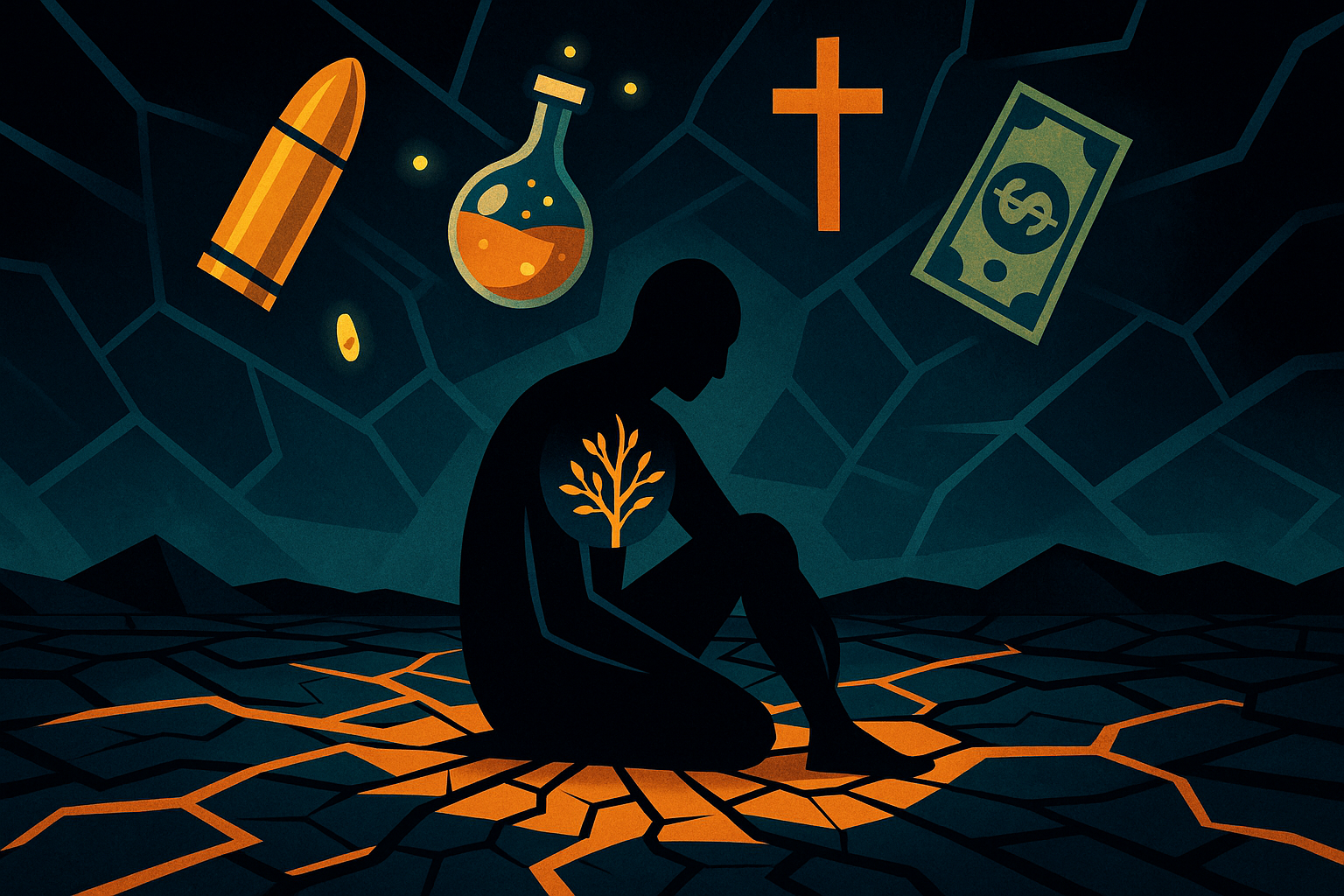READ IT TO ME: Click play to listen to this post.
“Having anxiety and depression is like being scared and tired at the same time. It’s the fear of failure but no urge to be productive. It’s wanting friends but hating to socialize. It’s wanting to be alone but not wanting to be lonely. It’s caring about everything, then caring about nothing. It’s feeling everything at once, then feeling paralyzingly numb.” – Anonymous
I don’t ever remember not having to address depression in my life. It has been a constant companion. I have mentioned that most days I wake up with a bad attitude. What I mean is that it’s another way of telling you I am depressed. It’s not the big deal it once was. I have learned how not only to manage it but to make depression a consultant to the way I want to live my life. I will describe more about that below.
I was born on Sunday, November 11, 1951. I was told it was the only Sunday I was ever excused from going to Sunday School throughout my entire childhood. If I was sick on Sunday I had a choice to make. Staying home meant staying in bed. My mom had a rule—“If you were too sick to go to Sunday School, you were too sick to get out of bed”. So I went to Sunday School because God and my mom said so.
Staying at home meant that I had to be alone and bored. Plus, I wet the bed till I was a fifth grader and didn’t want to wallow around in my wet plastic sheets throughout the morning until the rest of the family returned from church. Both home and church were boring. It set me up to be depressed as a kid.
I was taught the world was coming to an end because the communists were coming to take over America, and besides that, Jesus was going to return any day. The caveat was that the Christians had to hang around for 3 1/2 years of persecution and torture before Jesus came down from heaven to rescue all of us, the good guys.
The emphasis was to be one of the good guys. Add to that, neglect and some abandonment from my parents, sexual abuse from the minister, and some physical abuse from older brothers, and you can understand why I was depressed as a little kid. I began doing bizarre stuff like trying to warn my friends to turn or burn. Once, I ran out of a baseball stadium thinking it was going to blow up. I was taken to a kid’s shrink in an effort to figure out what was wrong with me. Nobody ever stopped to consider what was wrong with the system that taught me all this crazy shit! Given what was being shoved down my throat, I was acting pretty “normal”.
I didn’t excel in school. I made “C’s”—all “C’s”—only “C’s”. I even made “C’s” in P.E. and recess. I thought that was pretty good until later I learned that it was considered failing even though I passed. I always thought that was kind ofcrazy talk.
I was identified as the least likely to go and finish college. I was told I would not be anything special by my guidance counselor in college.
I determined to prove everyone wrong! I became a minister. I learned to work my ass off, 16 to 18 hours a day, for literally no money for 3 years. People thought I just loved God. I was trying to prove that I was not invisible and mattered. It didn’t work. After 12 years of working more than 80 hours a week. I crashed and burned with depression.
It was triggered by the 10th suicide in parish ministry in three years. I went numb and was unable to function period. I couldn’t work, eat, sleep, or do anything! I lost 40 pounds in 6 weeks. I became suicidal. I tried to walk out in front of a jet at the airport, back in the day that you could attempt to do that without being accused of being a terrorist.
Finally, I was hospitalized after taking 7 Xanax because I kept forgetting when I took the last one. When admitted, I stared at a piece of fuzz on a picture glass window for 10 hours and was not high on anything. For the next 3 years, I learned to return to the land of the living. I learned to face mental illness and manage depression. At first, I took Prozac and Xanax responsibly. I needed it. There were times during the day when my brain became like an old churning washing machine. When that happened I couldn’t think or function. Xanax calmed that forever “free falling” experience I suffered and Prozac helped me think straight. So I used the meds till I didn’t need them anymore.
Slowly, I recognized that I learned early in life to deal with cultic abuse, physical and sexual abuse, neglect, and abandonment with the cocktail of work addiction and sex addiction. Hard work was always valued by my parents. Dad worked 3 jobs at once and mom always did janitorial work. Plus they both raised 12 kids! I do not remember when I did not chronically masturbate to get through all the anxiety while growing up.
What triggers or creates depression is not the same for everybody. The list of treatment modalities for depression is long and varied. They are all valuable and helpful depending upon the patient’s condition.
Here are some things to consider:
1. Don’t be resistant toward taking a med to help ease the intensity of depression. First, if you have ever been depressed you know it’s more than just being sad and down. It dominates your existence. You can’t do anything. Okay, so I was a minister at the time I suffered acute major clinical depression. At the time, I couldn’t pray! Every time I tried to pray, I would break into a sweat and I could not force any words out. It was the damnedest experience! So I ended up drawing with stick figures my prayers with a caption each day! I couldn’t eat, concentrate, or otherwise function. Yet, I was determined not to take any medication, for a while. How stupid could I be? As a professional, I frequently listen to drug and substance abuse clients who are stuck in major clinical depression but refuse to take a prescribed med to alleviate the depression. It is mystifying why a drug addict resists taking a med for depression.
Take the med prescribed by your M.D. or shrink! You will need to work with them so they can adjust the prescription to fit your particular biological need. It will help alleviate the intensity of depression. You may or may not have to take the med long-term.
2. Be flexible: Consider inpatient treatment and alternative therapies when what you have done has not worked for you. Effective therapeutic modalities are dynamic and not static. Be willing to alter your lifestyle or diet. Utilize old and new modalities and use whatever works for you. Stubbornness and obstinacy often impede effective treatment for intense depression.
3. Create an attitude that is proportional to healing. When you are down it’s easy to victim-posture. When you can’t get out of bed, it’s easy to surrender to feeling overwhelmed, pull the covers over your head, and escape through sleep. When I was hospitalized for my depression, after a season of time in the proverbial “padded cell”, I had beaten my Bible with my fists till they were raw and bloody. In that moment of desperation, I determined I was going to get through what hurt down deep. With my wife, I adopted an attitude in the phrase “I would be willing to “hock my socks” to get healthy. With this hashtag, we made an alliance with each other that I would somehow climb out of the downcast and dregs of depression with her support. Healing is about attitude. Develop the kind of attitude that fuels resilience within you. You won’t make it through depression without it.
4. Depression requires a longer sense of perspective toward finding meaning in your suffering. There is an emphasis with some who have religious faith that suffering is what we are meant to experience. For some, suffering is a badge of sainthood. For me, this is bullshit! There is no justification for human suffering. In many cases, suffering just is. Try to tell a devastated family living in Gaza today that their suffering is for a purpose and you will come across as cruel and unkind.
That said, we can create meaningfulness from all life experiences, including suffering. Victor Frankl, Austrian psychologist, and Holocaust survivor declared that “Everything can be taken from a man but one thing: the last of the human freedoms—to choose one’s attitude in any given set of circumstances, to choose one’s own way”. This is the beginning of finding meaningfulness in the suffering that comes with depression. If you go deep within yourself you can transform meaningfulness from moments of emptiness in the dark night of the soul and in places that feel like a free fall into a bottomless pit of anxiety and overwhelm. Many times we try to wrap the human experience around a concept of God when the concept of God comes from human experience. Sit with the reality of a depressed condition and let it speak its truth. It will help you find meaningfulness in your suffering.
5. Make depression your friend and consultant. I know this sounds crazy! Anyone who has experienced oppressive depression would never want to sign up for it again or make it a friend! But it is!
If you are not able to function because of depression, then it is not your friend yet, however, I have learned to not run, but to listen. Listen to whatever message that the universe is trying to convey. In this way, depression has become my consultant. Parker Palmer once said “Our deepest calling is to grow into our own authentic selfhood, whether or not it conforms to some image of who we ought to be. As we do so, we will not only find the joy that every human being seeks, but we will also find our path of authentic service in the world.”
Depression has a way of winnowing out the chaff from life with a clearer definition of what needs are not being met and how to meet them in a more healthy way. In other words, depression could be considered the voice of God telling you what is missing and out of balance in your life and how to meet that need in a healthy way. You will need to listen to its voice and not shrink back but lean into its truth. In this way, depression does not have to be devastating. It can be a redeeming friend. It is all a matter of perspective.
Purpose is determined by the one making meaning out of life. If you conclude that you have no meaning in depression then it will give you no purpose. If you decide to uncover meaning in your depression you are more likely to solidify purpose and empower fulfillment in life, not in spite of depression but actually because of it.





